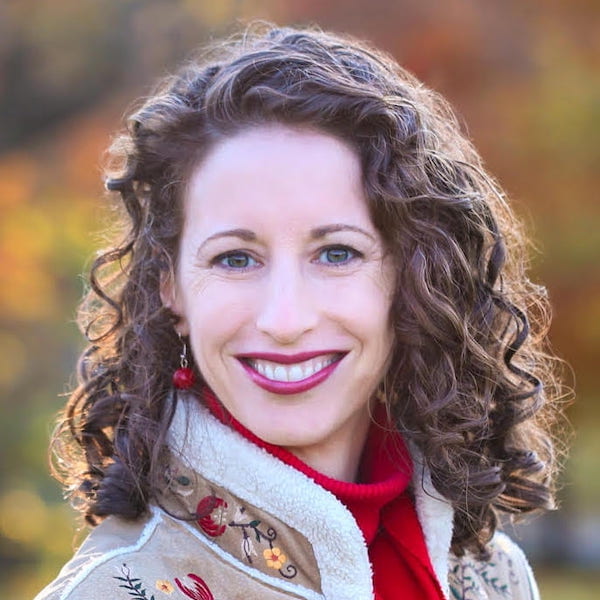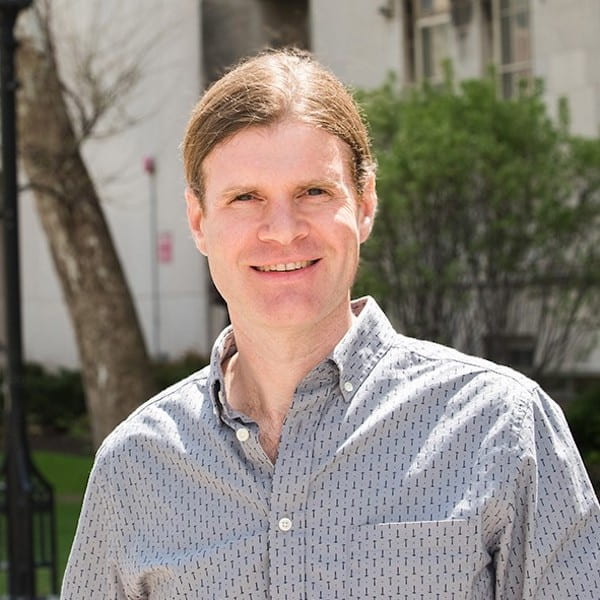Leadership

Rebecca Willett
Professor of Computer Science and Statistics, Committee on Computational and Applied Mathematics
Rebecca Willett is a Professor of Statistics and Computer Science at the University of Chicago. Willett’s work in machine learning and signal processing in the natural sciences reflects broad and interdisciplinary expertise and perspectives. She is known internationally for her contributions to the mathematical foundations of machine learning in the natural sciences and computational imaging, with nearly two hundred book chapters and scientific articles in top-tier journals and conference proceedings at the intersection of machine learning, signal processing, statistics, mathematics, and optimization. Willett’s work in this space has had important implications in materials science, astronomy, climate science, national security, medical imaging, and several other fields. Her group has made contributions both in the mathematical foundations of signal processing and machine learning and in their application to a variety of real-world problems in STEM. In addition to her technical contributions, Willett is a strong advocate for diversity in STEM and AI and has organized multiple events to support women in middle school, as undergraduate and graduate students, and as faculty members.

David Freedman
Professor of Neurobiology, Committees on Computational Neuroscience and Neurobiology
David Freedman is a Professor in the Department of Neurobiology and the Neuroscience Institute at the University of Chicago. He has a broad background in cognitive, systems, and computational neuroscience, with expertise in electrophysiological approaches for recording neuronal population activity in awake non-human primates trained to perform complex behavioral tasks which require learning, memory, and decision-making. His research program also has a major focus on artificial intelligence (AI) approaches for studying neuroscience-related questions in artificial neural networks, and on designing novel biologically-inspired AI approaches. His research, supported by NIH, NSF, DOD, and private foundations, investigates the neuronal computations of higher-order perceptual and cognitive functions. Following graduate and postdoctoral training at MIT and Harvard Medical School, he established his laboratory at the University of Chicago in 2008, from which he has trained numerous graduate students and postdoctoral scholars that have successfully established their own independent research careers. His work has been recognized by the Troland Research Award from the National Academy of Sciences, the Vannevar Bush Faculty Fellowship from the Department of Defense, the NSF Career Award, and Faculty Fellowship Awards from the Sloan, McKnight, and Brain Research Foundations. In 2018, he received the University of Chicago Faculty Award for Excellence in Graduate Teaching and Mentoring.

Aaron Dinner
Professor of Chemistry, Deputy Dean of the Physical Sciences Division
Aaron Dinner is a Professor of Chemistry and Deputy Dean of the Physical Sciences Division at the University of Chicago. He also hold appointments in the James Franck Institute and the Institute for Biophysical Dynamics. His group’s most well known contributions are to machine learning methods for interpreting complex biomolecular simulations, sampling methods for systems far from equilibrium, and models of hematopoietic cell fate choice. Much of his current work is collaborative, and many of his students and postdoctoral scholars are jointly mentored by experimentalists and/or applied mathematicians. His honors include a Searle Scholarship, NSF CAREER Award, Sloan Fellowship, APS Fellowship, and participation in the 2010 and 2014 Latke-Hamantash Debates.

Chibueze Amanchukwu
Neubauer Family Assistant Professor of Molecular Engineering in the UChicago Pritzker School of Molecular Engineering
Chibueze Amanchukwu is a Neubauer Family Assistant Professor in the Pritzker School of Molecular Engineering at the University of Chicago and holds a joint appointment at Argonne National Laboratory. His research is focused on enabling long duration electrical (batteries) and chemical energy storage for a sustainable energy future. His team is especially interested in modifying electrolyte and ion solvation behavior to control electrochemical processes occurring in batteries and electrocatalytic transformations such as carbon dioxide capture and conversion. They couple data science, computation, synthesis, and characterization to holistically understand ion transport in electrolytes and control interfacial reactions for efficient and cheap long duration storage. His work has been recognized with the NSF CAREER Award, DOE Early Career Award, ECS-Toyota Young Investigator Fellowship, CIFAR Azrieli Global Scholar Award, and the 3M Nontenured Faculty Award. He obtained his PhD in chemical engineering as a NDSEG Fellow at MIT and was a TomKat Center Postdoctoral Fellow at Stanford University.

Victoria Flores
Director, AI + Science Research Initiative
Victoria is the Director of the AI + Science Research Initiative, where she will manage grants, pursue funding opportunities, and cultivate strategic partnerships. Victoria has experience applying for and managing federal grants, including training grants from NIH, and liaising with internal and external stakeholders through the Leadership Alliance. Prior to her current role, Victoria directed pathway programs to support the academic and career success for persons traditionally underrepresented in higher education. Victoria received her PhD in Ecology and Evolution from the University of Chicago and in 2018 her bachelor’s degree in Psychology and Hispanic Students from Brown University.

Marisa O. Davis
Assistant Director, The Eric and Wendy Schmidt AI in Science Postdoctoral Fellowship
Marisa is the Assistant Director of The Eric and Wendy Schmidt AI in Science Postdoctoral Fellowship Program, where she leads the program in several key functions, including faculty leadership support, developing partnerships across all Divisions and the National Laboratories, coordinating postdoctoral recruitment and hiring across academic departments, and managing program staff and operations. With deep expertise in program management, she has successfully led initiatives that connect scholars and researchers across disciplines, foster innovation, and build strong, supportive communities. Prior to this role, Marisa managed programming for fellows and postdoctoral scholars at the National Institute for Theory and Mathematics in Biology (NITMB) and launched their inaugural Summer Undergraduate Research Program. She has also led student affairs and experience, from recruitment through graduation, for the Medical Scientist Training Program, an interdisciplinary MD/PhD program at the University of Chicago. Marisa holds an M.Ed. in Counseling Psychology from the University of Missouri and a B.A. in Sociology from Spelman College.
Fellow Selection Committee:
- Aaron Dinner (Committee Chair), Chemistry
- Junhong Chen, Molecular Engineering
- David Freedman, Neurobiology
- Pedram Hassanzadeh, Geophysical Sciences
- Daniel Holz, Physics and Astronomy and Astrophysics
- Jason MacLean, Neurobiology
- Catherine Pfister, Ecology and Evolution
- Tiffany Shaw, Geophysical Sciences
- Rebecca Willett, Statistics and Computer Science
Mentorship & Evaluation Committee:
- David Freedman (Committee Chair), Neurobiology
- Seppe Kuehn, Ecology and Evolution
- Elisabeth Moyer, Geophysical Sciences
- Daniel Nicolae, Statistics and Human Genetics
- Vincenzo Vittelli, Physics
Training & Events Committee:
- Rebecca Willett (Committee Chair), Computer Science and Statistics
- Alex Drlica-Wagner, Astronomy and Astrophysics
- Ian Foster, Computer Science and Argonne National Lab
- Robert Grossmann, Biomedical Data Science and Computer Science
- Abhishek Kumar, Imaging Science and Marine Biological Laboratory
